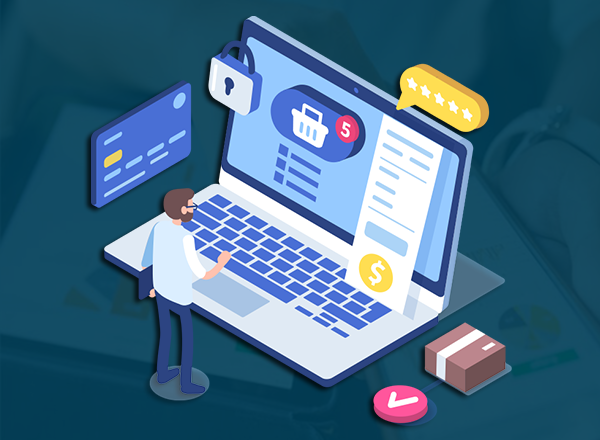What is e-commerce development?
An e-commerce website or a mobile app, as it popularly is known is just part of the e-commerce development. It is just the online storefront, but eCommerce development includes a plethora of elements which support a transaction to happen seamlessly.
As a business owner, if one is looking for investing in eCommerce development should look it from a broader perspective and see how it can improve the op-line. An eCommerce development includes different elements of infrastructure which are developed or integrated with the store to enable customers to transact seamlessly.


The elements include:
• eCommerce website or mobile app which acts as the online store through which customers can interact with the business. This, in turn, helps the customer discover the products or services offered and what price point by the business.
• The Inventory management system, if the business is not using one, then the business can think of investing in one of them. On the other hand, eCommerce development should be able to integrate the existing system with the online store. This would ensure real-time management and less customer dissatisfaction.
• Collection of payment is an important element of the eCommerce infrastructure of the business. Integrating with a payment gateway so that the customer can make a payment seamlessly is also an important element of the customer’s journey. Customers can always stop visiting the store because it doesn’t enable digital payment.
• Accounting, sales accounting and creation of invoices is an important element of any sales process, whether done online or offline. The eCommerce development should enable integration with the accounting system or software of the business so the process operates seamlessly like other channels of distribution.
• Logistics, once a sale is closed online, the business has to ensure that the goods are delivered on time to the customer. Integrating with APIs of different logistics providers can enable this function. Non-delivery of goods on time can lead to customer losing trust in the brand
• Customer relationship management, quite similar to the physical store where people are physically present to address customer queries, eCommerce storefront also requires systems to handle customer queries on a real-time basis. Integration with third-party CRM system or building a custom CRM system provides customer support is an important element of an eCommerce infrastructure.
• Marketing enablers, one of the key elements of eCommerce development is building marketing infrastructure for the store. The marketing enablers may involved integration with third-party apps or custom application to enabling marketing activities like offers and search engine optimization. If the website is made as per guidelines given by Google algorithms makes it easy for promoting through SEO.


